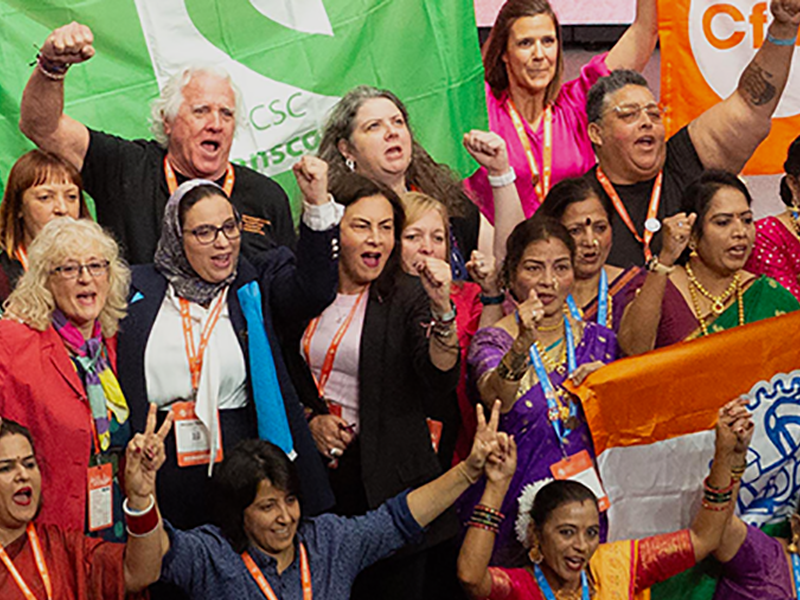It is a direct outcome of the global union movement’s campaigning and solidarity, and follows the complaint made under the Organisation of Economic Cooperation and Development (OECD) guidelines about the conduct of DP-DHL.
The protocol commits DP-DHL to the OECD Multinational Guidelines and to building a more productive relationship with the global unions.
The three parties will meet four times a year and attempt to resolve issues in a mutually acceptable manner to avoid future problems.
ITF general secretary Stephen Cotton said: “This is a new phase in the relationship between the global unions and DP-DHL…This agreement gives us a more progressive industrial relationship that includes dispute resolution mechanisms, supply chain responsibility and reaffirms the right of workers to a collective voice at work without fear of retaliation.
“Our energies will now be focused on testing the commitments made and converting the protocol into something meaningful for all DHL workers regardless of division, contract or country.”
UNI Global Union general secretary Philip Jennings welcomed the central role the German government played to make the protocol possible and said it was now incumbent upon all parties to make it work and deliver results for DP-DHL workers around the world.
Andrea Kocsis, deputy national chair of ITF union ver.di in Germany, added that DP-DHL and the global unions must use the protocol to build a relationship that benefits workers.



